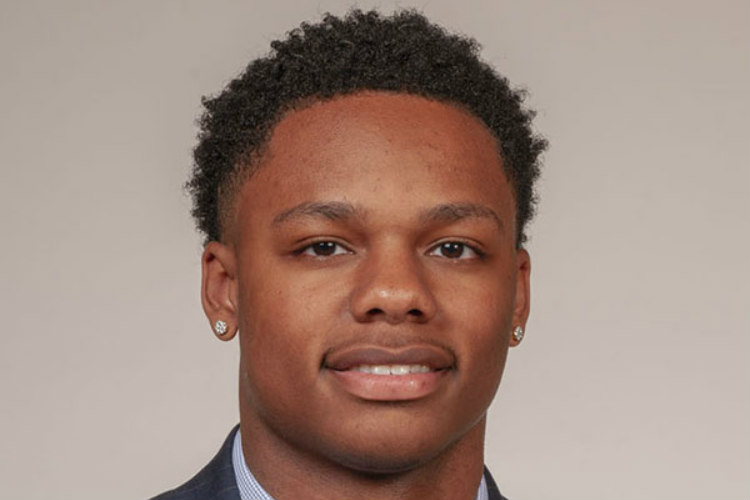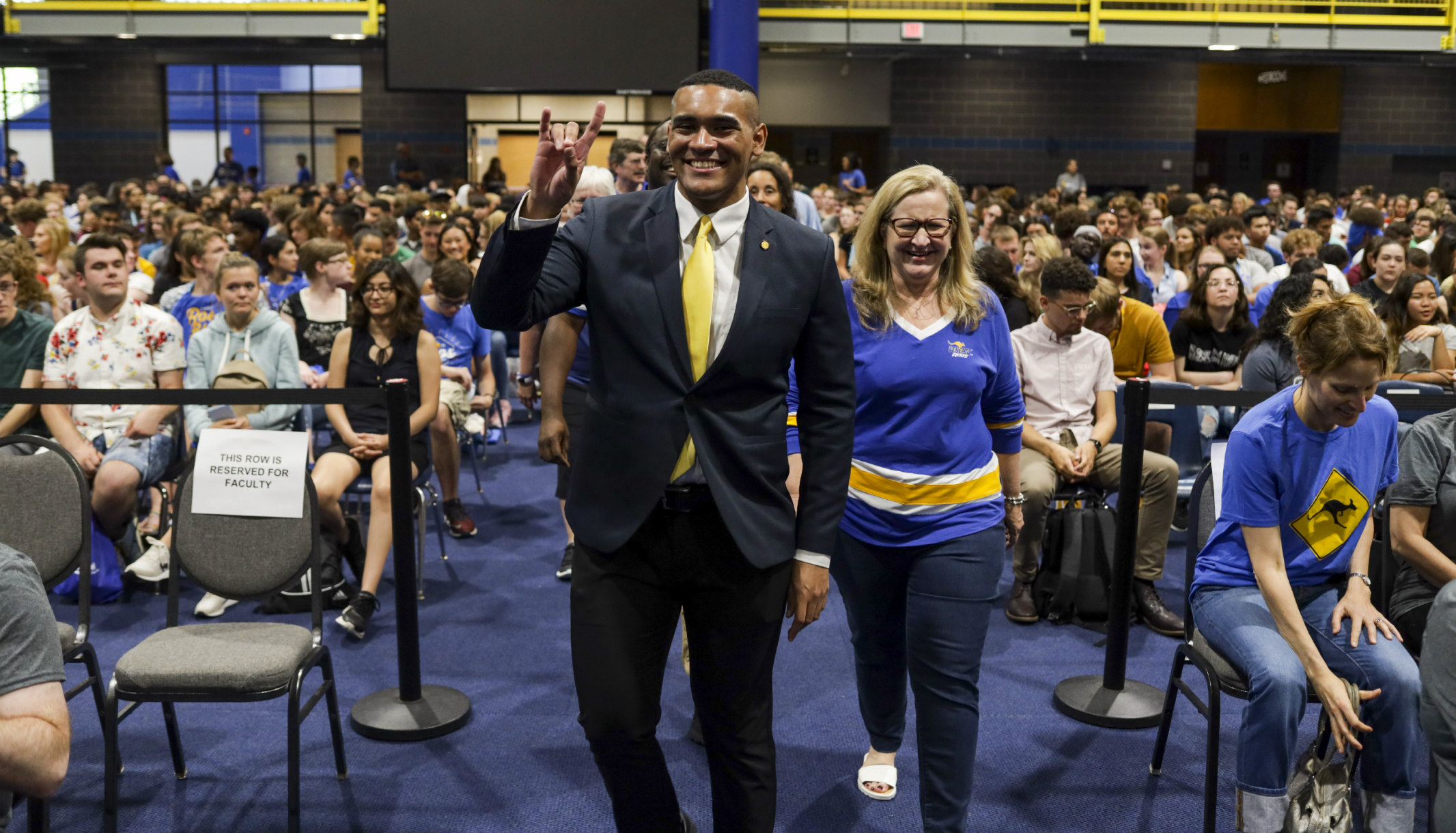In celebration of Black History Month, we asked student leaders to reflect on the idea of making history – as opposed to studying or celebrating history.
Participants include:

Jordan Grimmett, president, Men of Color Initiative
Hometown: St. Louis
Age: 20
Major: Six-year BA/MD program at UMKC School of Medicine

Justice Horn, SGA president
Hometown: Blue Springs, Missouri
Age: 21
Major: Business Management

Alexis Jackson, secretary, The African American Student Union (TAASU)
Hometown: St. Louis
Age: 22
Major: Health Science

Cameron Johnson, president, Multicultural Student Organization Council
Hometown: St. Louis
Age: 21
Major: Biology
What does it mean to you, personally, to “make history”?
Grimmett: Making history can be attained in countless ways, but there are commonalities between them: inspiring others, making change or doing something so remarkable that it does not fade from people's minds. So, to me, making history means giving back to the less fortunate, staying true to yourself and fighting for what's right.
Johnson: To me, making history means leaving a legacy that people who come after you can use to be better versions of themselves; and to get to places that, before you, they would have a harder time reaching.
Horn: As UMKC’s first multicultural, openly gay student body president, making history means that I represent my community, but also those who came before me. I represent several disenfranchised communities, and representation matters. That is why I make history: to break through barriers in sectors that have never seen anyone from my community.
Who are the people alive today who have made black history? What have you learned from them that you apply in your own life?
Jackson: People like Beyoncé, LeBron James, Barack and Michelle Obama, Oprah Winfrey and Robert Smith have made black history. These major figures have taught me that the sky is the limit and not to hold out on my dreams for anyone.
Grimmett: A few that have inspired me frequently are Barack Obama, LeBron James and Oprah Winfrey. They all have been leaders in their respective careers and have paved the way for others like them to be successful in similar ways. As a future health-care provider, I take these lessons personally because I’m aware of the disparities that exist in certain communities and I know that I will have a strong platform and resources to support and fight for those that are less fortunate.
Johnson: Barack Obama, Nicki Minaj, Beyonce, Jay Z, Simone Biles, Claressa Shields, 50 Cent. What I have learned from them is to raise the bar against all odds. I have also learned to follow your dreams, even if the people around you won't understand at the time.
Do you know anyone personally who you would call a black history-maker? What have you learned from them?
Johnson: Every person that breaks down barriers for people in their family is making black history. We come from generations of overcoming oppression, so yes, if you are doing things that you never thought you could do, then that is black history. Congratulations are in order.
Grimmett: Dr. Kevin McDonald, the vice president for Diversity, Equity and Inclusion at the University of Virginia. I was fortunate to meet him through a program called MOCHA (Men of Color, Honor and Ambition) that strives to provide development in various aspects of life and academics to men of color in high school and college in an effort to increase academic success, retention and future success as leaders.
Horn: I know a lot of people I would call history makers and many of them are here at UMKC, leaders such as Athletic Director Brandon Martin, NAACP President Kayla Pittman, Vice Chancellor of Diversity and Inclusion Susan Wilson, MSA President Cameron Johnson, TAASU President Brandy Williams and many more. Those are people I look up to because they are making history every day.
Why does making history matter?
Horn: For our community to advance and make strides, we must have a seat at the table. When big decisions are being made and/or policy is set, there must be someone from our community representing us and advocating for us. Always.
Grimmett: We need acts of excellence to continue inspiring others to follow their dreams. There have to be leaders and innovators who aren't afraid to take risks for the advancement of mankind.
Do you believe that you will make history? As an individual? As part of a community?
Horn: I believe I will continue to make history because I’m pursuing a career in a profession that hasn’t seen a lot of people like me. I plan on pursuing a career in politics, and my end goal is being Missouri’s first African American governor.
Grimmett: There is not a lot of African American representation in medicine, so in part I hope to make history as an individual, but also make history by building a community of African American physicians that can be the face for aspiring individuals in younger generations.
Johnson: I do believe that I will make history, not because I seek to be famous but because everything that I do is for the benefit of those around me. That kind of dedication to the cause has a good chance at getting recognition, and if it doesn't, that doesn't make the contribution to my people any less historic.
Jackson: I believe I will make history by contributing to our society, by volunteering to make change and helping keep policy makers in office that support all people and recognize their struggles.
What are your goals in terms of making history?
Jackson: My goal is to excel in my career, to let other black and brown girls know that anything is possible.
Grimmett: Graduating medical school and becoming a physician will open many doors. I want to create scholarships and programs that will help increase the population of underrepresented minorities attending college and entering medical school.

